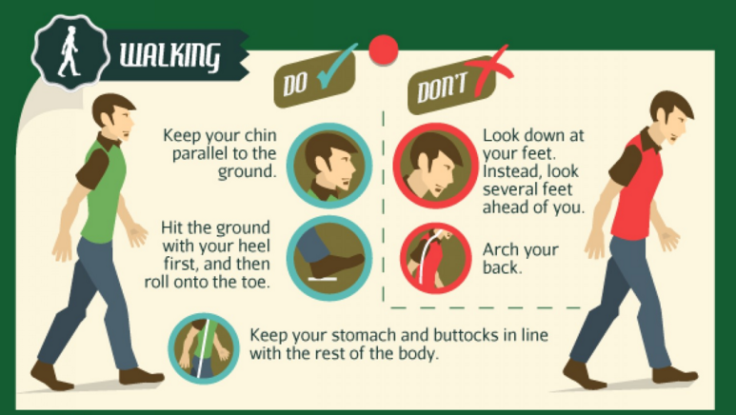The Ultimate Guide To Great Posture: Improve Your Mood, Intelligence, And Memory By Sitting Correctly

The way you hold yourself when standing, sitting, or walking can define your appearance a great deal — but it can also impact several aspects of your health, from your respiratory system to your mood. In the age of sedentary living and desk jobs, recent studies have discovered that consistent poor posture can lead to a slew of health issues, including fatigue, abnormal spine alignment, chronic pain, and digestive problems.
Of course, maintaining good posture takes self-awareness and discipline, especially if you’re used to crouching over your laptop or phone for over eight hours a day. That’s where the below infographic, designed by Voltier Digital, comes into handy.
The main differentiation between good and bad posture is that bad posture can put a strain on the body, weighing down on the lungs, spine, and muscles, while good posture actually relaxes the body and prevents tension and chronic pain. It’s just a matter of reminding yourself to keep your head as straight as possible, relax your shoulders and hold them back, and keep your feet flat on the floor, as the infographic illustrates.
It often seems that bad posture goes hand-in-hand with lack of physical activity and a sedentary lifestyle; it’s easy to get stuck in a vicious cycle of slouching at a desk all day, experiencing fatigue and back pain, then avoiding the gym to sit on the couch at night before bed. This can lead to not only exhaustion and muscle pain, but chronic health problems associated with sedentary lifestyles: an increased risk of depression, heart disease, and even cancer. To get started, wear sneakers instead of high heels or boots to begin your posture maintenance, which in turn will provide better support for walking and exercising.
Research has shown that sitting or standing with good posture can boost your confidence and sense of power, improve your digestive function, help you breathe more deeply, keep your bones strong, and even reduce headaches. It can also sharpen your memory and intelligence, enhance your mood, and overall provide you with many health benefits.
Interestingly, one recent study goes against all this accumulated knowledge about posture, pointing out that Japanese fourth graders actually concentrated more on math problems when slouching and relaxing their core muscles. But here’s the thing: If you’re doing posture right, your muscles will already be relaxed in a proper position. Slouching every so often to peer at a problem or a sentence to focus, then, could be an occasional exemption.




























